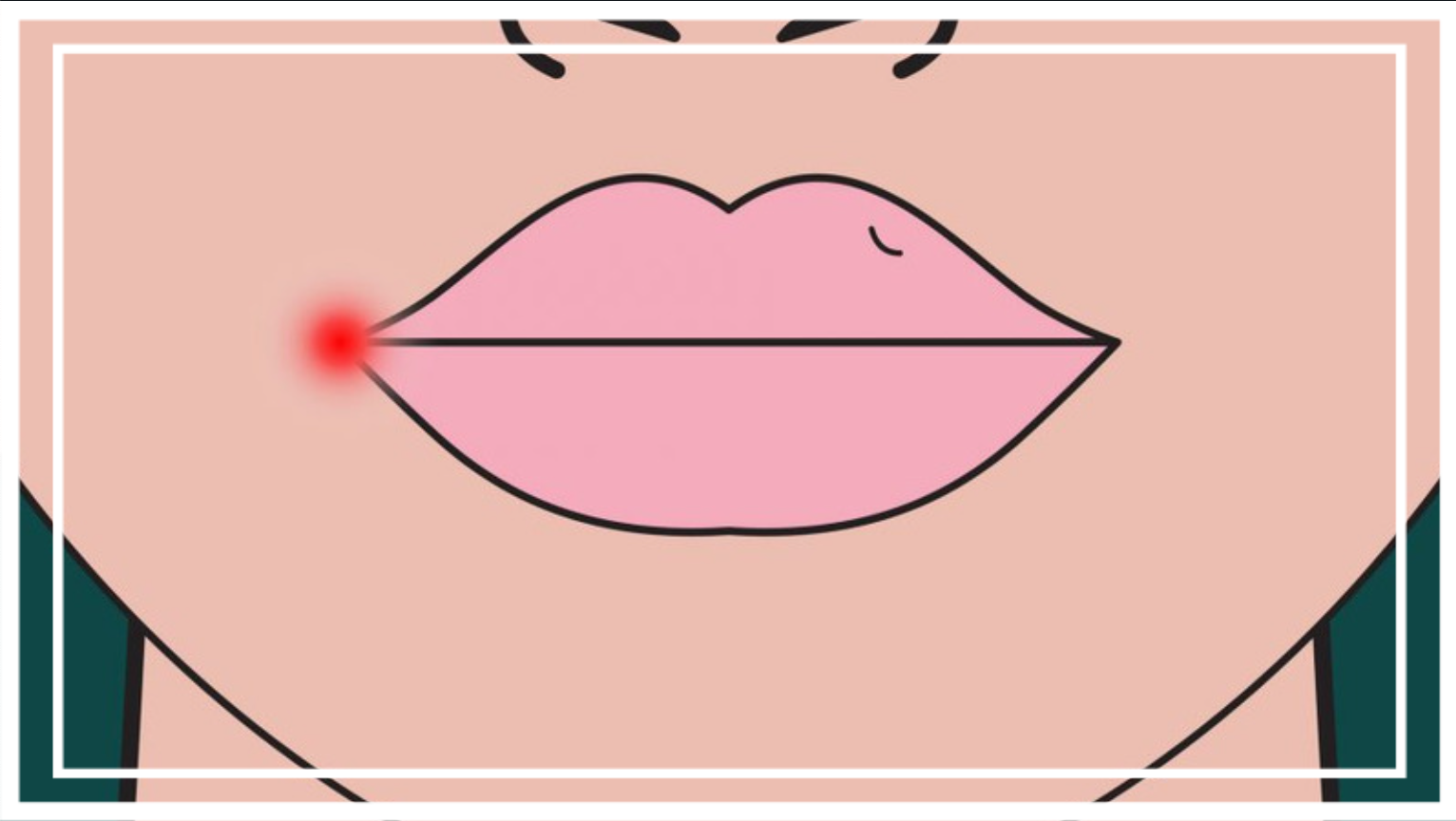Natural remedies for cold sores and treatments recommended by doctors
The treatments and natural remedies for cold sores recommended by experts to help soothe discomfort and promote healing.


Parenting advice, hot topics, best buys and family finance tips delivered straight to your inbox.
You are now subscribed
Your newsletter sign-up was successful
Although cold sores usually clear up on their own, they can be painful while they heal, so we asked the experts for their recommendations for natural remedies for cold sores, as well as treatments that can be used to help soothe discomfort and promote healing.
Cold sores are caused by the herpes simplex virus (HSV), which is a very common infection. As many as seven in 10 people in the UK are infected by HSV1 and you can experience a cold sore break out when you're feeling run down, stressed or from exposure to UV light.
"Winter temperatures and harsh winds tend to dry out the lips. This can lead to the reactivation of the herpes simplex virus; the cause of cold sores," says Dr Anjali Mahto of the British Association of Dermatologists. "A lack of vitamin D, which is a common problem during darker and colder months, can also weaken the immune system and result in more frequent outbreaks," she explains. Other triggers include injury to the area and hormonal changes.
An outbreak can cause painful sores or blisters to develop on the face and they will usually last up to 10 days before clearing up on their own. For advice on how to help ease the pain of a cold sore while waiting for it to heal and clear up, we consulted Dr Anjali Mahto, as well as GP Dr Sanjeev Kalia and Marian Nicholson, who is the director of the Herpes Virus Association.
Remember that cold sores are contagious from the moment you first feel tingling or other signs of a cold sore coming on. Avoid kissing anyone (especially children and babies, who are particularly at risk) while you have a cold sore, and don't share towels, cutlery, make up, lip balm or anything that may have come into contact with your cold sore until it has completely healed.
The information in this article is for general purposes only and does not take the place of medical advice. It is essential to be guided by your GP and take note of official NHS advice. If you are unsure or concerned about your symptoms, then it is crucial to seek personalised advice from a doctor as soon as possible.
Natural remedies for cold sores
Here the experts explain what you can do to help ease cold sores while they heal and potentially avoid triggering another outbreak.
Parenting advice, hot topics, best buys and family finance tips delivered straight to your inbox.
1. Cool compress
"A cool compress can help speed along the healing process," recommends Dr Mahto. "It works by reducing inflammation and the pain associated with it."
Marian Nicholson of the Herpes Virus Association also explains that a cool compress could help to avoid triggering a cold sore outbreak: "There are various things you can do to prevent the cold sore if you start when you are feeling the warning tingles," she says. "Hold an ice cube off and on the skin for 30 minutes. Or maybe try a pack of frozen peas!"
2. Lemon balm
Essential oils have been used medicinally for centuries, and one such oil thought to ease cold sores is lemon balm.
"My favourite is lemon balm (melissa officinalis)," says Marian. "Research shows it has molecules to block the virus getting into the skin cells. Apply lemon balm cream such as Lomaherpan well into the place where you feel the cold sore coming about five times a day to prevent the sore."
The NHS recommends that you do not rub creams into a cold sore and dab them on instead.
3. Used tea bags
You can also try a humble tea bag - yes really! Marian says that as well as acting as a cold compress to reduce inflammation and redness there's evidence to suggest that terpenes – an active ingredient in tea – promote healing.
"A cold damp tea bag may be a bit messy but the terpenes in tea are effective," says Marian. Terpenes are naturally occurring compounds known to have a number of medicinal qualities, including antiviral and anti-inflammatory properties.
4. Petroleum jelly
As far as healing salves go, you can't do much better than Vaseline. One of the many uses of Vaseline, using a mineral-based barrier like petroleum jelly can help seal in moisture and keep the skin protected while it heals.
Dr Mahto says, "Using a greasy moisturising cream on the skin like petroleum jelly can help in getting rid of cold sores faster."
5. Salt water
Salt water is an age-old cure-all, thanks to its mineral content. We gargle it to soothe a sore throat, use it for cold remedies, and it may also help heal cold sores. "Washing the area gently with salt water can help," says Dr Mahto. "Though remember to dry the area gently but thoroughly after washing."
According to medical brand Zovirax "Salt water affects the environment around the virus so it can't thrive, which might help dry up the cold sore, but it can also be painful on your skin."
The NHS also warns, "do not eat acidic or salty food if it makes your cold sore feel worse."
6. Take care of yourself
"Once the cold sore has broken your skin and caused a blister, it will only get better when your body has built new skin cells to fill the hole," explains Marian. "This will be quicker if you get enough sleep, good food and don’t do anything that is bad for your body," she says.
What treatments do doctors recommend for cold sores?
"The drug treatment of oral herpes simplex depends on the person's age; how often they have [cold sore] attacks and how severe they are, as well as where they [the cold sores] attack and if the person has any underlying health conditions," explains Dr Kalia.
"Most people need no treatments at all but you can get over the counter products from your pharmacy such as aciclovir or penciclovir," Dr Kalia continues. "These products are mainly useful if started before vesicles appear (eg taken when you feel the tingling sensation before the cold sores appear)."
Aciclovir is possibly the most recognised medication for cold sores. It works by speeding up the healing process and easing the tingle and blister. "Aciclovir is an antiviral medicine, prescribed by a GP in tablet form; however, you can buy it in cream form at pharmacies or other stores without a prescription," says Dr Mahto.
The NHS recommends taking, "paracetamol or ibuprofen to ease pain and swelling."
Consult your GP or speak to a doctor before using any medicine or treatments for cold sores.
How long does a cold sore usually last?
"Without treatment, a cold sore will disappear in roughly 7-10 days," says Dr Mahto. "If you're getting cold sores frequently, visit your GP to see if you can get antiviral prescription tablets," she advises.
When to see a doctor about a cold sore
GP Dr Sanjeev Kalia recommends making an appointment to see your doctor if:
- a cold sore has not started to heal within 10 days.
- if you're unsure that is in fact a cold sore or think it's something else (as some serious skin lesions can look similar to cold sores).
- you find the lesion is sore or is covering a very large area or more painful than expected.
- you find that your gums are either swollen or painful or if the sore is present inside the mouth (gingivostomatitis).
- you have any condition that means you may have a weak immune system e.g. for people who have HIV or are being treated with chemotherapy.
If you want more information and general advice about oral herpes simplex infections you can check out the following resources:
The information on GoodTo.com does not constitute medical or other health advice or diagnosis and should not be used as such. Although GoodtoKnow consults a range of medical experts to create and fact-check content, this information is for general purposes only and does not take the place of medical advice. Always seek the guidance of a qualified health professional or seek urgent medical attention if needed.
Our experts

Dr Mahto trained in South Wales, where she also acquired an additional degree in Pharmacology alongside Medicine. Thereafter she pursued her higher specialist training in dermatology. Dr Mahto has a rich experience of working in prestigious teaching hospitals of the UK, such as Imperial College Healthcare and the Royal Free Hospital, Hampstead.

Dr Sanjeev Kalia is an experienced NHS General Practitioner who has worked as partner at three different surgeries in the Midlands over the past 9 years. In each of his surgeries he has been the lead for newborn baby health screening known as the ‘6-8 week check’. Dr Kalia has a strong interest in medical education and encourages patients to be empowered to self-manage their care through media such as apps and online platforms. He works as a GP trainer and for many years as a tutor to medical students as well as holding an interest in digital healthcare. He is also the founder of the baby burp cloth innovation, Avi Bear.

Marian Nicholson has appeared in magazines, on TV and has given radio interviews in her role as the HVA's director. Marian also represents the charity on the Herpes Simplex Virus Advisory Panel – a sub-group of the British Association for Sexual Health and HIV (BASHH). This panel writes the herpes simplex guidelines for doctors. She has been living with herpes simplex since 1981.
This article was originally published on December 4th 2021 and was updated on June 1st 2024 to add comment from Dr Sanjeev Kalia.

Debra Waters is an experienced online editor and parenting writer. She also has a strong background on health, wellbeing, beauty, and food. She currently writes for Goodto and Woman&Home, and print publications Woman, Woman’s Own, and Woman’s Weekly. Debra has written for What to Expect, Everyday Health, and Time Out. In addition, she has had articles published in The Telegraph and The Big Issue.